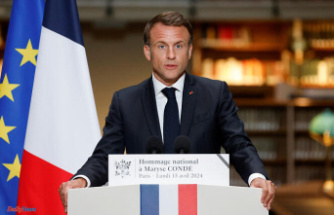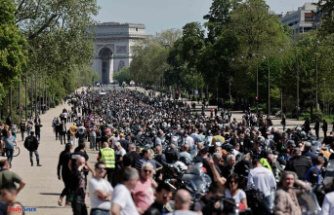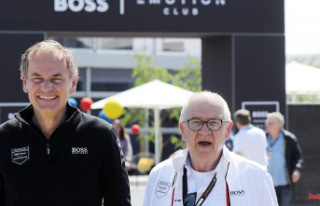At the end of the G7 summit, Chancellor Scholz emphasized that the states would continue to stand by Ukraine. The meeting shows the determination to counter Russian aggression. The price for Putin will continue to be pushed up.
Chancellor Olaf Scholz has assured Ukraine of the support of the G7 round of leading democratic economic powers. The G7 stand "closely and steadfastly on the side of Ukraine," said Scholz at the end of the G7 summit in Elmau, Bavaria. "We support the country in its defense and offer it a perspective for the future."
Scholz spoke of an important G7 summit at a very special time. The meeting impressively demonstrated unity and determination to counter Russian aggression. Russia has been at war with Ukraine for 125 days, said the Chancellor.
As a group of economically strong democracies, the G7 condemn this merciless war. The rocket attack on a shopping center in the Ukrainian city of Kremenchuk this Monday, which left many dead and injured, is further proof that Russian President Vladimir Putin "is maintaining his brutal aggression towards the population," criticized Scholz.
"We agree: President (Vladimir) Putin must not win this war," Scholz said. "And we will continue to uphold and drive up the economic and political costs for President Putin and his regime. It is important to stand together for this, even over the long haul, which will certainly be a matter here." In addition, they want to stand united against the "Russian narrative" according to which only the West condemns the attack on Ukraine, "and otherwise the world is watching what Russia is actually doing there," said Scholz.
According to Scholz, the plans for a price cap for Russian oil still require "a lot of work". It is "a very ambitious and very demanding project". Germany and the other G7 countries want to examine mechanisms for a price cap for Russian oil. The responsible ministers should be instructed accordingly, confirmed several diplomats. Possibilities for price caps for gas are also to be examined. The plans that have already been made envisage forcing Russia to sell oil to large buyers such as India at a significantly lower price in the future. This could work by the West tying services such as insurance for oil shipments to compliance with the price cap.
The Chancellor also referred to decisions to support Ukraine, including the provision of budget support of around 29 billion US dollars. There is also humanitarian aid, for which decisions have already been made. In addition, the country will receive weapons. The G7 countries and the European Union also wanted to discuss the reconstruction of Ukraine, said Scholz.
According to Scholz, the G7 countries are also working together to combat hunger in the world. That had "become an even greater challenge due to the Russian attack on Ukraine," said the SPD politician. "We currently have 345 million people who we know do not have enough to eat. That is four times as many as live in Germany.
The climate crisis, the pandemic and Russia's war against Ukraine have exacerbated the problems again, said the Chancellor. In many African countries in particular, the food crisis has become an "existential threat". "That's why we want to act, which is why we have forged a global alliance for food security." In the fight against an impending hunger crisis, the G7 countries committed themselves at the summit to providing a further 4.5 billion US dollars for global food security. Development organizations complained that the commitments were not enough.
Scholz also reaffirmed the G7's goal of reducing dependency on oil and gas from Russia and promoting the expansion of renewable energies and climate protection. "We all agree where the future lies, namely not with gas." Scholz was pleased that the G7 partners supported his idea of an international climate club. "We agree: we need more ambition, more ambition, to achieve our climate goals," he said.
From Scholz's point of view, the summit also demonstrated the strength of democratic states. The results demonstrated "the great power of democratic alliances," said Scholz. "Elmau was very good for the G7 and the countries that cooperate with each other here." The time was well used.
It was also important that the leading democratic economic powers did not keep to themselves, but brought countries such as India, Indonesia, Argentina, Senegal and South Africa to the table. A new consensus was formulated together - "at eye level, because that's very, very important," said Scholz.
Scholz also emphasized the importance of summit meetings. "I believe these summits remain of the utmost, utmost importance," he said. "You don't have much of meetings where politicians meet - in recent years often also on the video stream - and then read statements," he added. It is important that the talks in such rounds are that you respond to each other and continue to discuss things bilaterally, "that you can pick up threads of conversation that you have tied half a day later, a day later," said Scholz. This succeeded in Elmau. "There has been a lot of trust between us and it will help us a lot in the near future."












